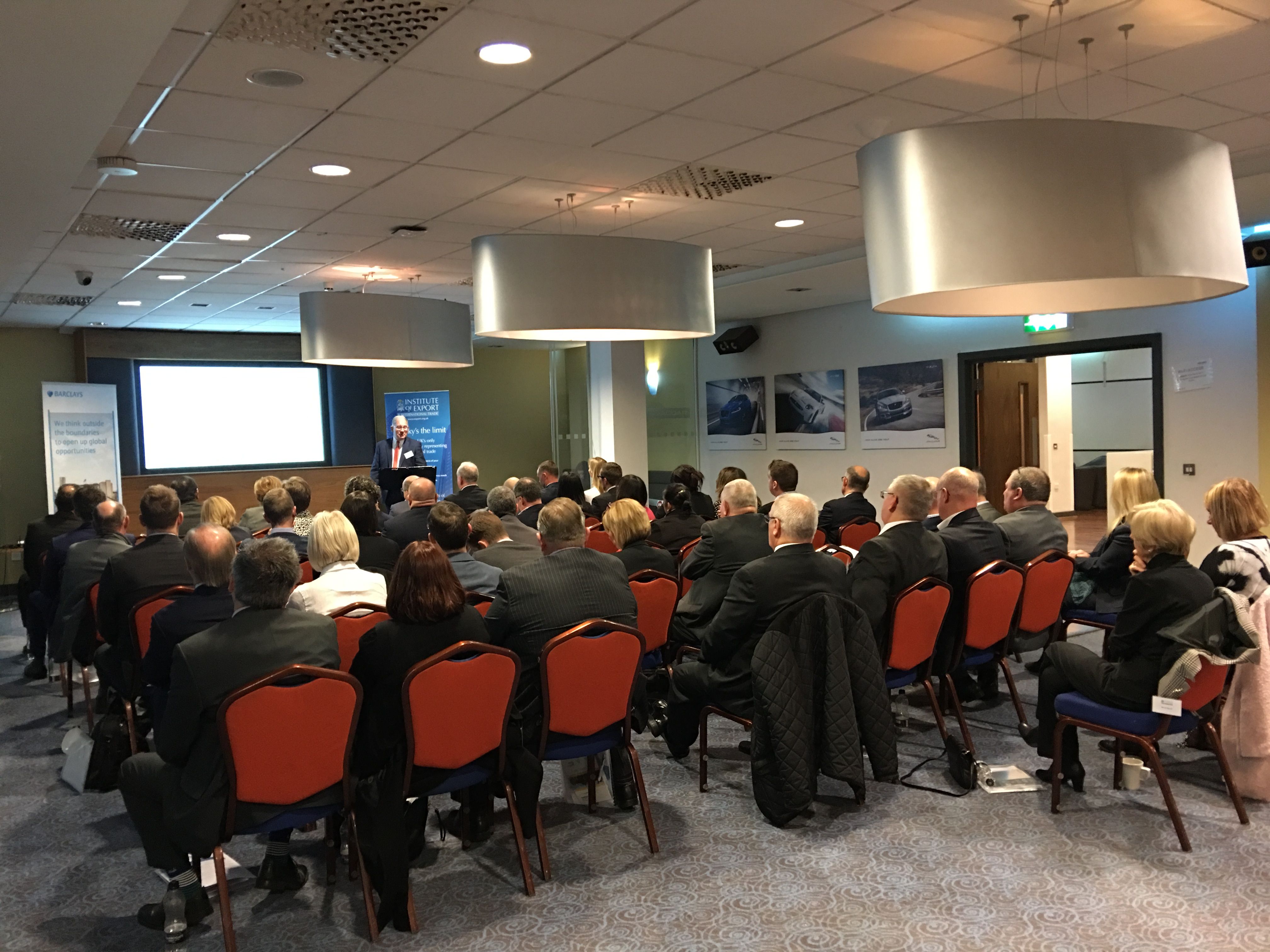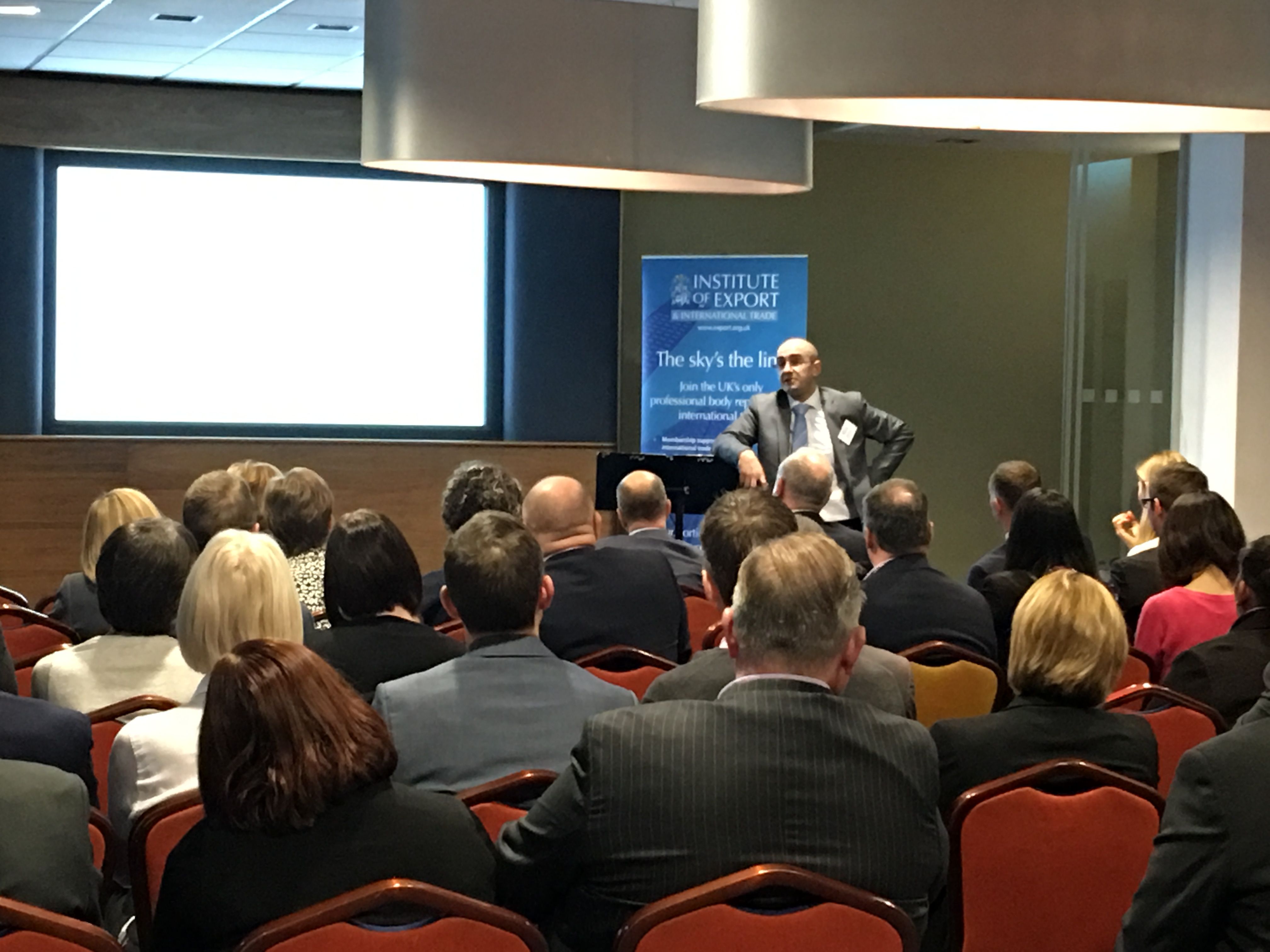
The Institute this week hosted its last trade summit of 2017 and once again it featured practical advice and insights around what the UK’s exporters can do to continue to grow overseas despite the risks bought about by Brexit.
While many of the year’s trade summits have voiced concern about the severity of Brexit's potential impact on the UK's position international trade, the summit in Coventry was perhaps the most positive in outlook, memorable for a can-do approach to overcoming the challenges ahead.
Practical sketches of a landscape post-Brexit
The summit continued with the theme of sketching a trade landscape for the UK following Brexit. Adam Taylor from Grant Thornton and the Institute’s very own Mike Josypenko both tried to sketch out some of key considerations for traders in the near future.
Mr Taylor presented on some of the fundamental conditions of international trade which are likely to be affected by Brexit - including proof of origin, customs entry requirements, and import VAT. Mike, meanwhile, was keen to point out some of the significant changes ahead in international trade that are unrelated to Brexit, including the Trade Facilitation Agreement that came into effect earlier this year.
Nicholas Tate from The Tate Group also discussed some of the changes in international trade likely to be bought about the UK leaving the EU, but also pointed out that each subsequent Free Trade Agreement signed by the UK will also bring about significant trade changes for exporters. Ajay Desai, from Coventry & Warwickshire Chamber of Commerce, sketched out the key developments that will have to take place in the negotiations before such a stage is even arrived at.
Businesses just get on with it
Talking about the on-the-ground experiences of actually being an exporter during this uncertain period, Mike Button from Coventry Chemicals gave one of the most memorable presentations from the year gone by.
He discussed how Brexit has already hit his company in regard to the labour and currency effects of the referendum outcome in 2016, but is nonetheless getting on with the business of doing trade in markets beyond the EU. He was keen to point out that markets outside of the EU continue to have their own issues – his business has been affected by political uncertainty and sanctions in Venezuela and Iran for instance.
Support at hand
As ever with our trade summits, there were plenty of support organisations on hand to talk about some of the work being done to help companies such as Mike’s. Among these Kathryn Moon from AJ Gallagher gave a checklist of some of the risks companies need to be thinking about around Brexit, Kelly Wren gave an introduction to the support offered by the Intellectual Property Office, and Jane Cooper presented the financial support offered by UK Export Finance for companies of all sizes.
Looking ahead
As already mentioned, the day’s presentations offered - generally speaking - a more positive outlook regarding Brexit. Interestingly, though, the summit covered broader, global changes ahead in international trade.
Lasma Orlovska from summit sponsors Barclays, for instance, discussed how the greater connectivity bought about by the growing phenomena of the ‘Internet of Things’ is set to create an even more data-centric trading world, and the impact of technologies like Blockchain could also be massive. It was also pointed out that a new set of Incoterms is due to be released in 2020 which could have a major influence.
But, to return to the points raised by Mike from Coventry Chemicals, for all the discussion and speculation around the impacts of new technologies, the 2017 TFA, FTAs and Brexit, the success of the UK’s exporters will come down to businesses just getting on with the task at hand.





